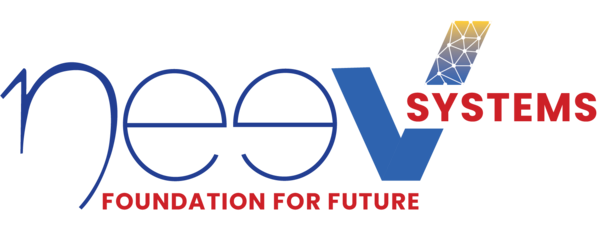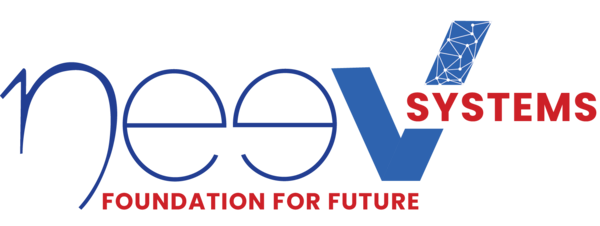The business landscape is changing dramatically in the context of digitization, talent scarcity, and the need for specialized skill sets. Consequently, organizations are revisiting the “build versus buy” debate, acknowledging the need for agility and value creation in an increasingly complex ecosystem. Today, we’re witnessing a shift from the traditional paradigm of static managed services engagements to a more dynamic, outcome-centric approach.
From Cost-Containment to Value Maximization: The Next-Gen Managed Services Evolution
Organizations are quickly shifting from cost-centric strategies to value-driven approaches. Traditional outsourcing models (a.k.a. legacy managed service models) cannot match the complex needs of an increasingly digitized business ecosystem and modern regulatory standards. They cannot promise advanced risk mitigation, ongoing innovation, and business agility.
Thus, forward-thinking organizations are replacing legacy managed services with next-generation managed services like Neev Systems.
What are next-generation managed services?
Unlike traditional service providers that only manage customer assets, next-gen service providers help businesses address the complexities of the IT ecosystem created by the varying needs of each domain, the presence of multiple technologies, and shifts in design and architecture paradigms. Organizations across industries are partnering with next-gen MSPs to address talent gaps, identify new revenue prospects, and gain a competitive edge. Businesses are combining the external expertise and skills of next-gen service providers with in-house strengths. This transformative shift represents a departure from legacy service providers that prioritize cost reduction and task fulfillment – the modern-day focus rests largely on innovative, outcome-driven partnerships that promote business agility and growth.
Traditional Managed Services vs. Next-Gen Managed Services
Traditional managed service models mainly focus on network and security support via continuous monitoring and infrastructure maintenance. However, many businesses now seek customized service packages and solutions aligned with the goals of the wider organization. Next-gen application management services offer a broader coverage – from security and maintenance to cloud delivery and workflow automation.
Below are a few aspects where traditional managed services differ from next-gen MSPs:
- Service offerings
Traditional MSPs focus on a few core services, including system administration, incident & patch management, and reporting. Next-gen service providers extend their services suite to include comprehensive risk management & vulnerability assessments for cybersecurity; cloud services to combat infrastructure challenges, reduce costs, minimize downtime, and boost security; colocation services to protect sensitive data and aid disaster recovery; 24x7x365 customer support, and scalable resourcing.
- Alignment with organizational goals
Traditional service providers are primarily concerned with an organization’s IT goals and strategies. Contrarily, next-gen application managed services possess a deep understanding of company-wide goals. Their recommendations and improvement strategies cover IT challenges along with other pressing business challenges of the wider organization. Since next-gen service providers use real-time insights to solve current problems and identify scope for improvement, they implement solutions to foster long-term resilience.
- Capacity-driven support
Traditional AMS teams usually work based on the capacity outlined in the contract, charging only for the hours they spend on resolving tickets. Next-gen service providers take this up a notch to deliver optimal value – besides working on tickets/incidents, they also make minor enhancements to the identified areas of improvement.
- Knowledge transfer & training
Generally, traditional service providers offer limited scope for training, documentation, and knowledge transfer. However, next-generation MSPs collaborate with the customers to educate their internal team via proper documentation, periodic training sessions, and discussion forums.
Redefining the Journey From Cost to Value With Next-gen Managed Services
Next-generation managed services transcend the notion of merely streamlining operations or automating tasks. They focus on value creation and dynamic collaboration in the cloud-based services domain. Next-gen service providers can be a strategic ally, delivering increased operational efficiency and skilled expertise to drive transformative capabilities.
The idea of automating routine processes and freeing up internal capacity for value-based projects encourages businesses to partner with application-managed services. While outsourcing is excellent for boosting productivity and cutting costs, business leaders must focus on the bigger picture – finding a partner inclined toward innovation and evolutionary transformation.
This progression from operational optimization to innovation encapsulates the true potential of next-gen managed services.

Transform Your Managed Services Experience
Three things top the priority list when reshaping business goals with next-gen managed service providers:
- Automation is the driving force of a growth-oriented organization.
- Business leaders must identify the right people (with a balanced mix of skills and leadership) who can drive projects to success.
- It is crucial to create a collaborative relationship between the enablers (identified in the second step) and the in-house team to pursue shared goals and objectives.
How are next-gen managed services steering organizations toward the value-based paradigm?
1. Driving Sustained Innovation
In our digitized world, where cutting-edge technologies generate vast data volumes and intricate regulations, next-gen Managed Service Providers (MSPs) are essential. They offer expertise in legal, security, compliance, and finance, guiding businesses through the complexities of digital transformation. Companies partnering with these service providers should establish clear contracts outlining milestones and progress structures. Leveraging agile strategies like adaptive planning and continuous improvement enables quick evaluation of innovative ideas, fostering dynamic learning and faster time-to-value for innovation.
2. Leveraging Disruptive Technologies for Compliance and Risk Mitigation
The modern regulatory landscape, characterized by data-centric business models, global operations, and heightened transparency expectations, necessitates a partnership with competent experts to ensure compliance and mitigate risks. Violations of data privacy regulations or perceived tax evasion can lead to substantial financial consequences and reputational damage. Collaborating with next-generation service providers is no longer just a matter of operational convenience; it has become a strategic necessity. MSPs offer expertise that extends beyond procedural adherence, encompassing a nuanced understanding of shifting regulations and the adoption of suitable technologies for risk mitigation.
By harnessing advanced analytics, artificial intelligence, and automation, organizations proactively identify and manage potential pitfalls and vulnerabilities while ensuring accurate and consistent financial reporting and compliance.
3. Augmenting Cybersecurity Capabilities
Next-gen managed service providers excel at risk mitigation, which is crucial for robust cybersecurity. Since cybersecurity implementation is a complicated process, organizations often do not possess all the required tools, skills, and expertise at any point. Application-managed services are better positioned to mitigate cyber threats due to their extensive knowledge of potential threats and vulnerabilities. They monitor multiple clients’ security events, analyze diverse threat intelligence sources, and offer actionable insights—becoming a shared resource for data-driven decisions.
MSPs act as an extension of an organization’s team, ready to offer the best and most feasible advice on various business-critical issues. They analyze event data, cross-reference it with threat intelligence, and prioritize actionable insights to identify automation and revenue generation opportunities.
4. Extending the Workforce Through a Flexible Talent Pool
Many organizations actively seek external partners that can seamlessly handle and oversee business-critical operations. Next-gen service providers present a dynamic model that enables multiple enterprises to share the cost of securing specialized expertise in complex and high-risk domains, including cybersecurity, tax compliance, and digital transformation. As a result, companies can leverage on-demand, fractional resources of service providers while tapping into their collective insights gained from multiple companies.
The industry is shifting from static to dynamic agreements to accommodate digital-first business models. While previously, the business transformation discourse revolved around unearthing new opportunities, today, it has extended to assessing potential risks. This is particularly due to sudden and rapid shifts in market trends and increasing skill shortages. AMS providers act as an anchor in the face of such uncertainties, filling the skills gaps with highly specialized skill sets to drive results-oriented strategies and combat the dynamic market forces.
5. Driving Continuous Improvement
Businesses across all sectors must continually evolve and improve to stay relevant in the competitive market. The idea is to choose a partner that can help a company realize its short and long-term goals while continuously finding ways to improve specific areas of operations.
Until a few years ago, service providers were only limited to managing customer assets. However, due to the demand for cloud-based services, now they have to involve public cloud providers. Larger service providers with more resources at their disposal hold the top position since they know how to manage everything – from sourcing talent globally to integrating IT systems smoothly. Modern-day information systems are granular, involving monolithic apps like ERPs and an intricate web of interconnected microservices. Next-gen MSPs offer maximum speed, volume, and agility to deal with real-world challenges.
6. Achieving Long-term Resiliency
Engaging next-generation service providers proves advantageous for various project scenarios, like hardware transitions, cloud migrations, and software adoptions. It offers a strategic approach to augment the workforce flexibly – the company can adjust it up or down per its needs. Service providers bring niche skills to design robust and secure platforms, drawing from collective insights. Business leaders can shape these insights into actionable decisions to improve operational resilience.
Although next-gen service providers are drivers of change and innovation, companies must assess their capabilities to ensure they align with the internal team. A competent service provider can propose improved approaches instead of simply accommodating the customer’s instructions. They must focus on delivering value-based and cost-efficient outcomes for long-term resilience.
The bottom line is…
The transition from cost-centric strategies to value-driven paradigms is starkly evident across the industry, and rightly so. Modern businesses can only thrive if they can balance potential opportunities and risks to achieve sustained growth. Widening skill gaps, increased AI adoption, and the scaling need for autonomous systems make a compelling case for next-gen MSPs.
Next-gen service providers help organizations solve current challenges and prepare for future ones. They enhance value by implementing advanced tech and optimizing operations, focusing beyond cost to agility, revenue, productivity, and customer satisfaction. Leading this evolution is Neev IT Solutions—a pioneer in managed application services. Going beyond cost-centric approaches, Neev propels businesses toward maximizing value. As the landscape evolves, Neev remains dedicated to driving innovation, efficiency, and strategic insights, reshaping the journey from cost-consciousness to holistic value-driven strategies.

Evolve with Confidence

Sitaram Pothula
With 22+ years of IT experience, Sitaram combines technical expertise with strategic leadership. He has led engineering teams and delivered solutions across BFSI, telecom, and healthcare. Sitaram excels in aligning technology with business goals to drive innovation and efficiency.


